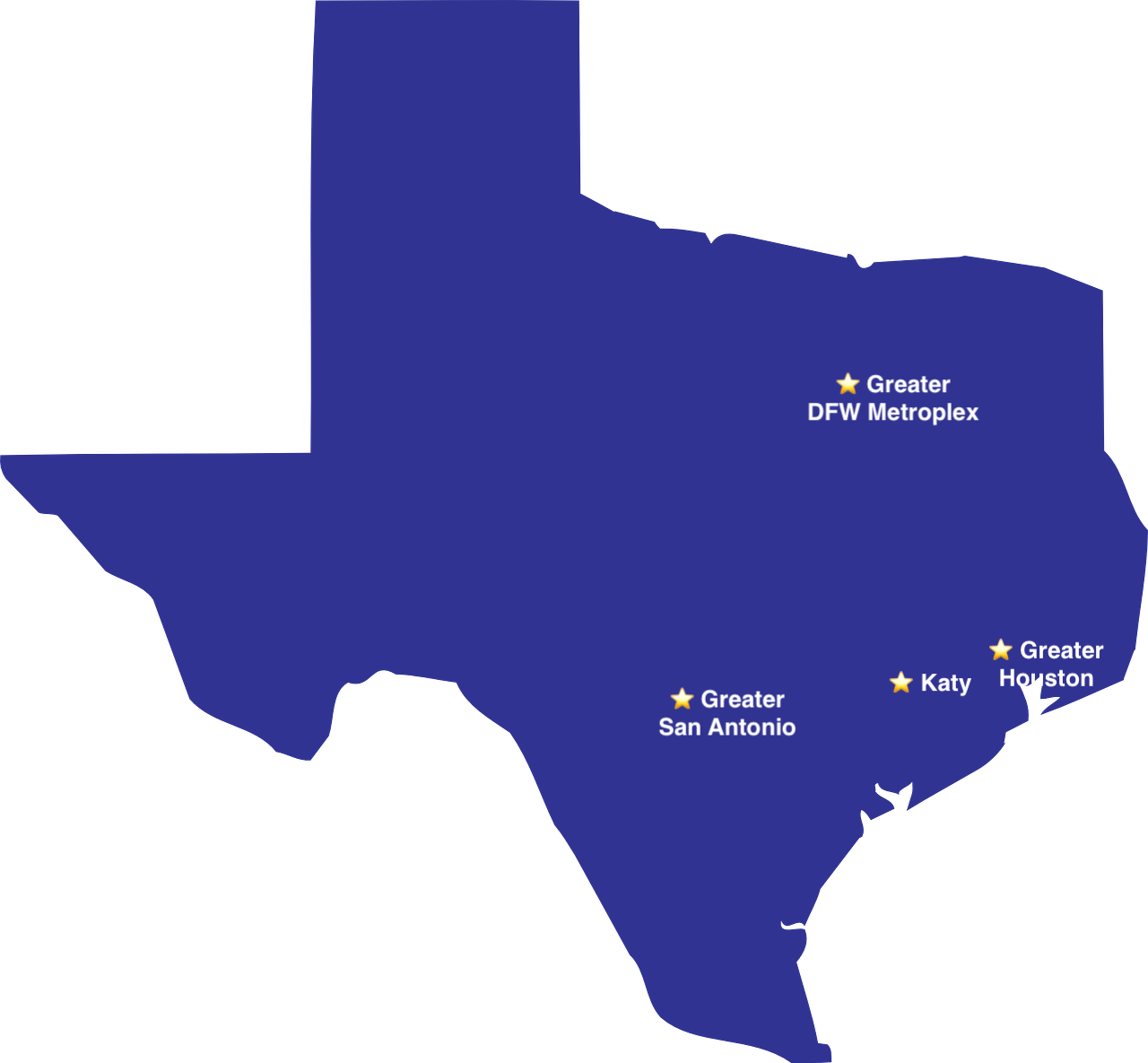Individualized Education Programs for Children Throughout Texas
You’ve had limited feedback about your son’s progress. For what records and communication you have received, you begged. But now the school calls and wants to have an IEP meeting by the end of the week. Work is busy now, but what choice do you have?
As you walk into the meeting, the LSSP hands you a new version of your son’s IEP.
You quickly page through it. The goals seem similar (were the old goals mastered?), it looks like your son’s speech services are different, and there is a box checked off about alternative testing. These meetings are always stressful and hard to follow.
The IEP process is complicated, but understanding the basics can go a long way. The guide below outlines the IEP process in Texas.
What Is an Individualized Education Program?
An individualized education program (or plan), or ARD in Texas, is your child’s written education plan. The IEP document is your roadmap to your child’s services and programming as provided under the Individuals with Disabilities Education Act. You can think of the IEP as a contract between you and the school to ensure services and programming for your child. The IEP is also the vehicle through which the school will provide your child with a free, appropriate public education.
Your child’s IEP must include:
- Present levels: The IEP will contain a statement or description of your child’s present levels of academic achievement and functional performance.
- Measurable Annual Goals: Your child’s IEP will include measurable annual goals, including academic and functional goals designed to meet your child’s needs and enable your child to make appropriate progress.
- Short-term Objectives: If your child will take alternate assessments aligned to alternate academic achievement standards, the IEP goals will also include short-term objectives or benchmarks.
- Progress Measurements and Reporting: Your child’s IEP will explain how your child’s progress will be measured and when progress reports will be provided.
- Special Education Services: Your child’s IEP will identify and describe any appropriate special education and related services or supplementary aids and services.
Your Child’s Iep Must Provide a Free, Appropriate Education
Free appropriate education or FAPE is special education and related services that (1) are provided at public expense, under public supervision and direction, and without charge; (2) meet the standards of the State educational agency (SEA), including IDEA Part B requirements; (3) include an appropriate preschool, elementary school, or secondary school education in the State involved; and (4) are provided in conformity with an IEP that meets the requirements of 34 CFR §§300.320 through 300.324. Further, each child with a disability is entitled to receive FAPE in the least restrictive environment (LRE).
Your school district must offer an IEP that is “reasonably calculated to enable a child to make progress appropriate in light of the child’s circumstances” for all students. That includes those performing at grade level and those unable to perform at grade level.
While the law recognizes that while the goals for any particular student goals may differ, every student should have the chance to meet challenging objectives.
A program or IEP that offers “merely more than de minimis” or trivial progress is not sufficient under the law. The Supreme Court has noted that a “student offered an educational program providing merely more than de minimis progress from year to year can hardly be said to have been offered an education at all…The IDEA demands more.” Each child’s educational program must be appropriately ambitious in light of his or her circumstances, and every child should have the chance to meet challenging objectives.
What Should an Individualized Education Program (IEP or ARD) Include?
The IEP must include annual goals that aim to improve educational results and functional performance for each child with a disability. This inherently includes a meaningful opportunity for the child to meet challenging objectives. Each child with a disability must be offered an IEP that is designed to provide access to instructional strategies and curricula aligned to both challenging State academic content standards and ambitious goals based on the unique circumstances of that child. The IEP must be developed in a way that ensures that children with disabilities have the chance to meet challenging objectives, as reflected in the child’s IEP goals.
Each child’s IEP must include, among other information, an accurate statement of the child’s present levels of academic achievement and functional performance and measurable annual goals, including academic and functional goals. This information must include how the child’s disability affects the child’s involvement and progress in the general education curriculum. How IEP Team members evaluate and assess this information, as well as the establishment of the child’s IEP goals, will each contribute to ensuring the child has access to challenging objectives. The IEP Team’s effectiveness in gathering and interpreting this information will ensure that, in establishing IEP goals, the child has the opportunity to meet challenging objectives. Your child’s IEP must aim to enable progress.
What Is Placement?
It is essential to make individualized determinations about what constitutes appropriate instruction and services for each child with a disability and the placement in which that instruction and those services can be provided to the child.
There is no “one-size-fits-all” approach to educating children with disabilities. Rather, placement decisions must be individualized and made consistent with a child’s IEP. We note that placement in regular classes may not be the least restrictive placement for every child with a disability.
Your school district must provide a continuum of alternative placements (including instruction in regular classes, special classes, special schools, home instruction, placement in private schools, and instruction in hospitals and institutions) is available to meet the needs of children with disabilities for special education and related services.
What if You Are Not Satisfied With Your Child’s IEP?
At least once a year, IEP Teams must review the child’s IEP to determine whether the annual goals for the child are being achieved. An IEP is not a guarantee of a specific educational or functional result for a child with a disability. However, the IDEA does provide for revisiting the IEP if the expected progress is not occurring.
To determine if your child’s IEP is sufficient to provide FAPE, you and the IEP team should ask whether your child’s IEP is reasonably calculated to enable him or her to make progress appropriate in light of his or her circumstances.
The IEP Team also may meet periodically throughout the course of the school year if circumstances warrant it. For example, if a child is not making expected progress toward his or her annual goals, the IEP Team must revise, as appropriate, the IEP to address the lack of progress.
You have the right to request an IEP Team meeting at any time. If your child is not making appropriate progress, the IEP Team must meet to review and revise the individualized education program as appropriate. Your child should be receiving whatever appropriate interventions, special education and related services, and supplementary services are necessary to achieve individualized and ambitious goals.
Public agencies may find it useful to examine current practices for engaging and communicating with parents throughout the school year as IEP goals are evaluated and the IEP Team determines whether the child is making progress toward IEP goals. IEP Teams should use periodic progress reports to inform parents of their child’s progress. Parents and other IEP Team members should collaborate and partner to track progress appropriate to the child’s circumstances.
What if You Disagree With the IEP Team?
Parents can use mediation and due process procedures if they disagree with IEP Team determinations about the special education and related services that are appropriate and necessary for their child to receive FAPE.
Special education law provides a mechanism whereby parents may opt to place their child in a private school setting in circumstances where they believe FAPE has been denied. If a court or hearing officer determines that a school failed to make FAPE available in a timely manner prior to enrollment in a private school setting, that the private placement is appropriate, and that the parents provided notice to the school district, parents may recover the costs of the private placement.
What if My Child Is Not Making Progress?
Your child should have an individualized education program that is reasonably calculated to enable him or her to make progress that is appropriate in light of his or her circumstances.
If your child fails to make progress within a reasonable period of time, your school district should hold an ARD committee meeting to address the lack of progress.
Your school district may be in violation of special education law if they are failing to address your child’s inadequate progress or ineffective services, and it may be time to contact us.
What if the School Has Failed to Follow My Child’s Individualized Education Program?
If your school has failed to implement necessary services or programming per your child’s IEP, you have several options to address this issue.
You can request an IEP meeting to discuss your concerns and ensure that the necessary changes are made to the IEP. If the school continues to fail in implementing the IEP, consider alternative dispute resolution methods like mediation.
If your efforts don’t lead to a resolution, filing a special education due process complaint against the school may be necessary. A due process hearing is a formal legal proceeding to resolve disputes over special education services. While these cases often settle during voluntary mediation, they can lead to a trial where an impartial hearing officer decides on the claim. Throughout this process, it’s important to consult with a Texas special education attorney for legal advice and representation.







